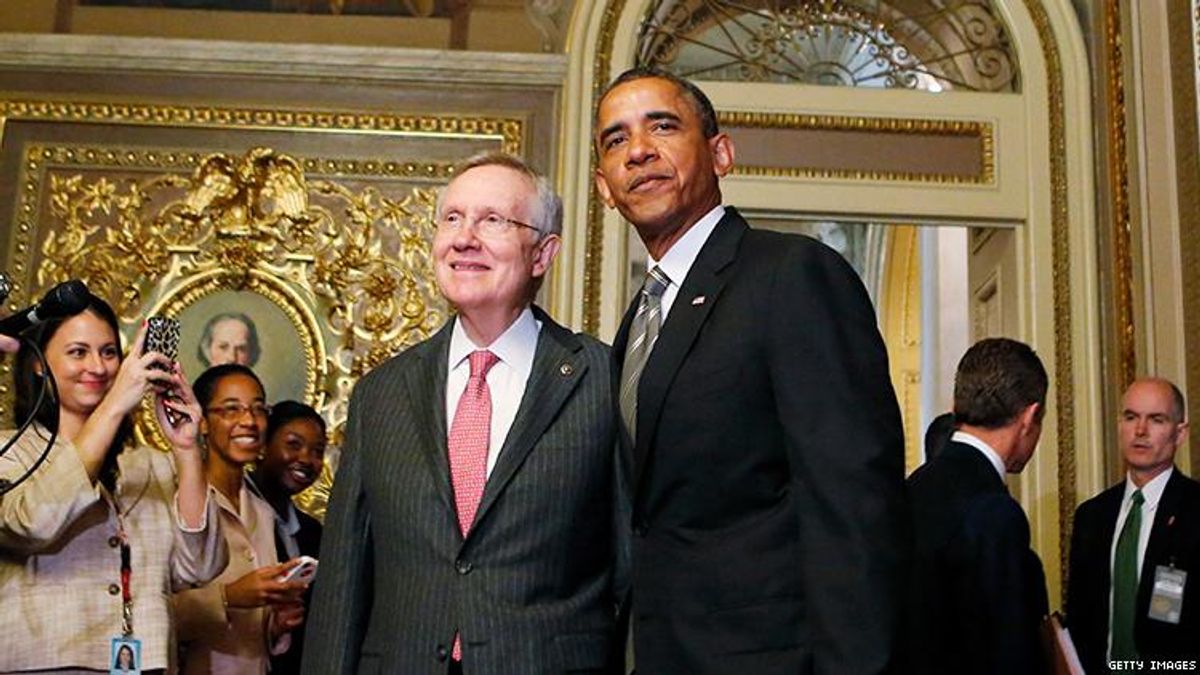Politics
Turns Out Harry Reid Played a Key Role in Dismantling DADT

“Reid put the screws on [Obama],” a source told journalist Ryan Grim.
May 29 2019 11:00 AM EST
May 31 2023 5:11 PM EST
By continuing to use our site, you agree to our Private Policy and Terms of Use.

“Reid put the screws on [Obama],” a source told journalist Ryan Grim.
Harry Reid apparently played a bigger role in repealing "don't ask, don't tell" than previously believed.
According to We've Got People: From Jesse Jackson to AOC, the End of Big Money, and the Rise of a Movement, a new book by journalist Ryan Grim released this week, the former Senate Majority Leader repeatedly pressed former President Barack Obama on passing legislation that would dismantle the 1994 military policy that prevented LGBTQ+ members of the United States Armed Forces from serving openly.
In an excerpt from We've Got Peoplepublished by HuffPost on Tuesday, Grim writes that, following pressure from LGBTQ+ activist groups like GetEQUAL during Obama's first term, Reid spoke privately with the POTUS. Obama didn't think that the Senate had the votes to pursue DADT's repeal, but the Nevada Democrat disagreed and, concerned about losing the majority in the Senate the following month, pushed the commander in chief to prioritize such legislative efforts.
"Reid put the screws on him," an inside source told Grim. "Reid in so many words made it clear to the president that he wouldn't get his START treaty ratified if he didn't get on board with repealing [DADT]... Let's put it this way: 'Don't ask, don't tell' became a priority for him."
The Senate ended up passing the Don't Ask, Don't Tell Repeal Act in December 2010, just as Reid apparently expected, and Obama signed it into law before the year was up. (Obama was always in favor of repealing DADT, Reid clarified in an interview with Grim. The former president reportedly just didn't think it was the right time to pursue it.) Its passage marked what Grim calls "a profound change in momentum on gay and transgender issues in Washington," one that built the necessary momentum for the Supreme Court's ruling on same-sex marriage five years later. Through the lens of 2019, however, its passage is somewhat bittersweet; what rights we are given can be taken away in a matter of years.
Beware of the Straightors: 'The Traitors' bros vs. the women and gays